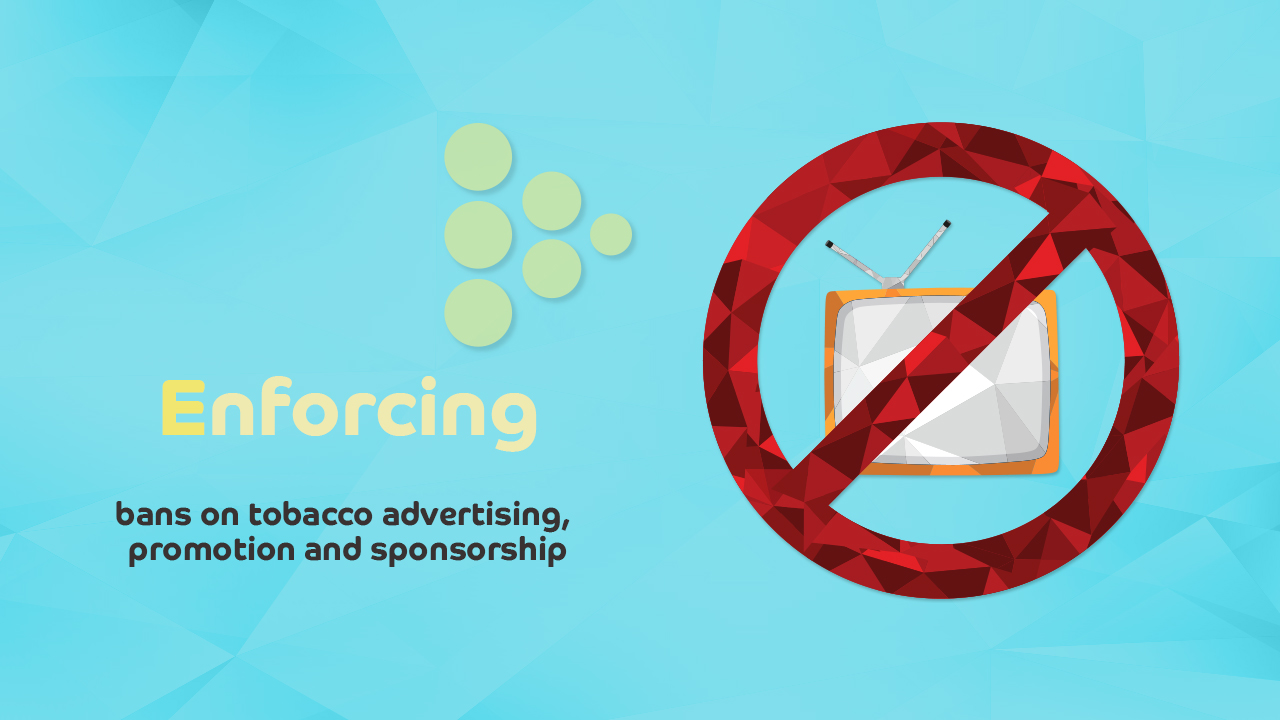
Context
Bahrain became a party to the WHO Framework Convention on Tobacco Control (FCTC) on 20 March 2007. The passing of Royal Decree No. 8 of 2009 marked a significant step forward in tobacco control efforts in the country, introducing the first comprehensive tobacco control law in the Kingdom. In line with Article 13 of the WHO FCTC, Bahrain implemented a ban on most forms of tobacco advertising, promotion and sponsorship. This ban aimed to reduce the appeal of tobacco products, particularly among the public and minors. Additionally, it sought to prevent the tobacco industry from exerting influence on tobacco policies and regulations by sponsoring governmental or nongovernmental activities and projects.
Initiative
Since the introduction of Royal Decree No. 8 of 2009, there has been vigilant monitoring to ensure compliance with the ban on tobacco advertising, promotion and sponsorship. While the ban encompassed all media channels including television, radio, newspapers and magazines, enforcing it in social media originating from Bahrain posed particular challenges. Additionally, tobacco brands were prominently displayed during Formula one events hosted by Bahrain. To address these issues, a ministerial decree was issued in 2011 specifically addressing tobacco advertising, promotion and sponsorship. This decree prohibited all forms of sponsorship and eliminated tobacco promotions from sports events. It also barred the tobacco industry from advertising and promoting tobacco products at points of sale, and prohibited the display of brand slogans, brand boxes and price tags. Moreover, free distribution of tobacco products, promotional discounts and offers were banned. Furthermore, the production of dramas by the Ministry of Information Affairs in Bahrain banned the depiction of tobacco consumption scenes, unless for the purpose of raising awareness.
Challenges and lessons learnt
Bahrain achieved the highest level of success in enforcing bans on tobacco advertising, promotion and sponsorship among countries of the Gulf Cooperation Council back in 2011. Subsequently, the compliance level has remained high (8 out of 10), as indicated by the latest WHO Report on the Global Tobacco Epidemic of 2019. The collected compliance data for this report demonstrate effective enforcement of both direct tobacco advertising bans and bans on tobacco promotion and sponsorship in the country. Rigorous monitoring of ban implementation and the referral of violators to public prosecution played a pivotal role in maintaining compliance. However, monitoring social media platforms continues to present a significant challenge. In response, the Ministry of Health has collaborated with the Cyber Crimes Directorate in the Ministry of Interior to address violations occurring on social media. Additionally, the regulation of electronic nicotine delivery systems poses a challenge, as they are classified as electronic devices rather than tobacco products, making the ban inapplicable to them.
Impact
The impact of the ban on tobacco advertising, promotion and sponsorship in Bahrain has not been measured. Nonetheless, data from the Global Youth Tobacco Survey conducted in 2002 and 2015 indicate positive changes. There has been a 10% decrease in the number of young people who reported owning items displaying tobacco or cigarette brand logos, and a 27% decrease in the number of young people who reported observing actors smoking on television.
Next steps
The National Antismoking Committee, led by the Ministry of Health, is advocating for the classification of electronic cigarettes (e-cigs) as tobacco products. This classification would enable comprehensive control measures, including the prohibition of e-cig advertising, promotion and sponsorship.
References
MPOWER measures to reduce demand for tobacco
WHO Framework Convention on Tobacco Control
WHO Report on the Global Epidemic Tobacco 2019
Story originated in 2019.


